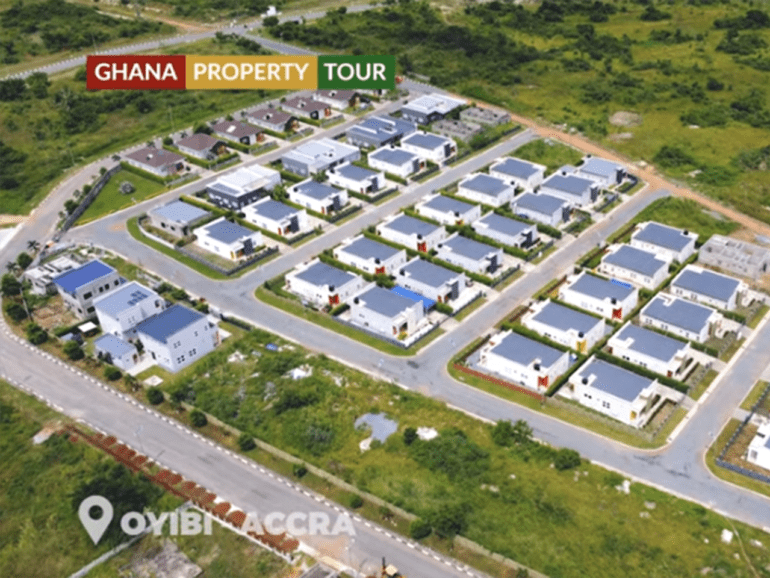African proptech Seso recognized early on that vetting properties as part of their full-service approach to the industry was a key differentiator in a bustling marketplace.
They obtain registry and land title documents and perform site visits, chief commercial officer Kweku Essien said. Mortgage financing is provided by Seso’s banking partners, some of the most popular local options. One, Republic Bank, has white-labeled Seso’s technology to offer mortgages from a Ghanaian bank to the African diaspora.
Born in Ghana, Essien lived in Canada as a teen. After college, his work took him to East Africa. One assignment had him working with Rwanda and Uganda to digitize their land registries. He met Daniel Bloch, who, two years later, started Seso and brought Essien on as an advisor.
Seso is developing a complete ecosystem
In the beginning, Seso sought to understand the various difficulties in digitizing a registry. They looked at the different participant roles, from developers and banks to lawyers and surveyors.
Now they are building an ecosystem.
Essien likens it to Africa’s Zillow; 70% of Ghanaian property developers are on Seso. Seso also operates in Nigeria and South Africa. More than 8,000 units, including land, off-plan, and fully built ones, are on the platform.
“This is the first of its kind,” Essien said. “Before this, only Kenyans could obtain a mortgage from a local bank. We’ve created this ecosystem with properties and banks. We also have lawyers and surveyors that can provide ancillary services. And this is on the front end, where we provide a brokerage service for which we get a commission on the sale of the property… and the mortgage.”
Targeting Africa’s diaspora
For now, Seso’s target market is the African diaspora.
Seso learned how to market to them through influencer videos and webinars successfully. They have also added events, including groups to tour African properties and see the lifestyle.
Roughly $43 billion in annual remittances are sent to Africa, with half of that going to Nigeria. (Ghana is in second place.) Thirty percent goes to real estate purchases or construction.
Seso is building capabilities to make this process as easy as possible, Essien said. Developer-intuitive financing programs allow purchasers to pay for purchases over two or three years. Major Ghanaian banks, including Ecobank, which has a 33-country footprint, offer mortgages.
“There’s already a wide diaspora out there that will be interested in this product,” Essien said. “We believe there’ll be a wide range of Black diaspora interested in investing back into the continent for emotional and economic reasons. There are many arbitrage opportunities there.”
The untapped African proptech market
Opportunity abounds, Essien explained. Airbnb said Ghana is a fast-growing market. Funds and syndicates are interested. More people are interested in retiring in Africa, and Seso works with chiefs and other key influencers.
In Ghana, the mortgage market is equal to one percent of the GDP. In the United States, the rate is 50%. Historically homes were built in a piecemeal fashion, with fraud and misappropriation of remittances common.

Yet, at the same time, interest in property ownership is significant. The diaspora, Seso’s current focus, wants to invest and needs credible help.
“We’ve got a large influx of these individuals,” Essien said. “These are individuals who are interested in buying a property and potentially repatriating over time and living there. But then we’ve seen many individuals, especially African-American corporates, interested in the investment aspect.”
Some international standards may not find mortgage rates of nine to 11% with 40% down attractive. But they are suitable for the local market, Essien said. He acknowledged that foreign investment could drive up property values for Africans wishing to buy property.
Additional issues are at play, however. There’s a multi-million house shortage on the continent, where as much as 40% might afford lower-priced housing. Seso seeks to solve that by working with developers on mixed-used developments that will be ready for an emerging middle class. Their work with chiefs to digitize records drastically improves transparency.
The roles of data and tokenization
Data accumulation and interpretation are other components that will drive Seso’s growth. Transactions generate data. Over time, checks will become simpler if a property is sold multiple times because they are registered on the Cardano blockchain.
In time, Seso will have a Cardano-based token that will incentivize market participants to legitimize their properties and do the checks. In exchange, they will earn Seso tokens that could enable rent or service discounts. The process will begin in Ghana and Nigeria.
Related:
A blockchain-based land registry with immutable and verified information grows and benefits the entire economy. It’s a truthful source of information and can incentivize people to register documents, properly transact, and even receive carbon credits. Fractional property ownership also becomes possible.
“What that does is transformational. At the moment, most registries are on paper, and it’s in some storage somewhere,” Essien said. “There’s the potential corruption that can be utilized to change information, leading to litigation that lasts five or 10 years.
“We want to create a system where you can utilize this platform as a source for truthful information and, over time, quickly solve some of these issues.”


